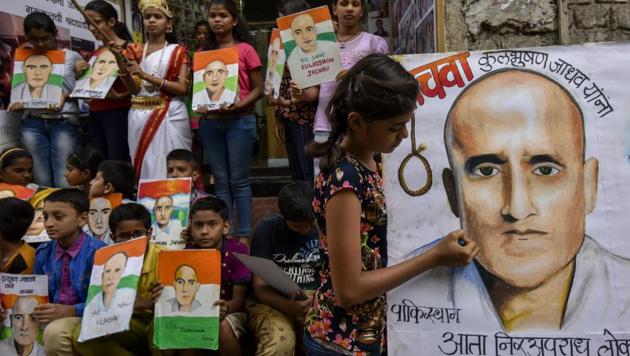ICJ might soon set a time-frame for hearing of Kulbhushan Jadhav case
Kulbhushan Jadhav was sentenced by a military court on charges of sabotage and espionage. India moved the ICJ citing violation of the Vienna Convention on consular access by Pakistan.
The International Court of Justice (ICJ) might soon set a time-frame for the detailed hearing of the Kulbhushan Jadhav case.

However, New Delhi is yet to hear from Pakistan as to whether the former naval officer will be allowed domestic legal recourse, which had been mentioned during the hearing of the case at ICJ.
Jadhav was sentenced by a military court on charges of sabotage and espionage. India moved the ICJ citing violation of the Vienna Convention on consular access by the neighbour as well as immediate danger to his life.
Gautam Bambawale, the Indian high commissioner to Pakistan, handed over two appeals from Jadhav’s mother – one to the Pakistan Army’s court of appeal against the death sentence, and another asking the Pakistan government to free her son -- to Pakistan’s foreign secretary, Tehmina Janjua, in Islamabad on April 26.
But Indian officials maintain Pakistan hasn’t responded to either of these appeals.
“We have received no response from Pakistan government on the two appeals,” said an official.
Jadhav was sentenced to death on April 10 for alleged involvement in terrorism and espionage. A statement from Sartaj Aziz, Pakistan PM Nawaz Sharif’s adviser on foreign affairs, said Jadhav had the right to appeal to an army appellate court within 40 days. Pakistan’s lawyer talked about the legal recourse available to Jadhav when the matter was heard at ICJ.
“This was pointed out during the hearing at the ICJ when the Pakistan side was opposing the argument that Jadhav’s life was in imminent danger,” said an official.
One of the reasons for the immediacy Indian side argued for was the unusual precedence of a military court sentencing Jadhav to death and Islamabad turning down the request for consular access 16 times.
But Pakistan said the case involved national security and charges of terrorism, which is why Jadhav was tried by a military court. Should a Pakistani appellate court reject his appeal, he has two more opportunities to challenge the sentence.
He can file a mercy petition to the Pakistan Army chief within 60 days of the court’s decision, and then he can file another mercy petition with the president within 90 days of the army chief’s decision.





